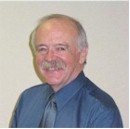Your New Body Tips
This week I am offering you a series of tips you may find valuable as you pursue you New Years resolutions of transforming your body so you look your best and feel your best. Following these tips should help you reach your optimal weight, improve your muscle tone and develop improved cardiovascular health.
- Although it may be obvious to many – it is not clear to some - significant changes require both exercise and responsible nutrition changes.
- Eat enough protein. Protein in every meal and snack. You need between 0.75 and 1 gram of protein per pound of desirable weight (approximately 2 grams per kg) depending on training intensity.
- Protein and fat control appetite, carbohydrates (pop corn and potato chips) do not.
- Protein helps to keep you alert, carbohydrates tend to make you drowsy.
- You must create a caloric deficit to burn fat (burn more than you eat).
- Calories count but don’t count calories – if you eat enough protein you will control your appetite and not eat too much.
- Muscle burns fat so build more muscle.
- Muscle weighs more than fat (per unit of volume) so be wary of giving too much attention to the weight on the scales. Use your clothing fit and the mirror test to asses your progress.
- Only weigh once per month. The only weight that counts is first thing in the morning after a visit to the bathroom and following a “normal” day and good nights sleep.
- Responsible nutritional supplementation is not an option if you wish to maintain optimal long-term health.
- Essential Fatty Acids (omega 3 and omega 6 – lecithin, oils from flax seed, walnuts, soybeans, and pumpkin seeds, salmon oil or wild salmon etc.) are necessary to metabolize other fats and to act as precursors to the “super hormones” that control the production of all other hormones.
- Additional fibre is necessary when you increase protein intake. Actually most people require additional fibre – average fibre intake is 12 grams and optimal according to the Cancer society is 30 –35 grams. This usually requires some form of supplementation.
- Optimal aerobic exercise intensity for fat burning can be estimates at 180 minus your age to equal the training heart rate. (for a 50 year old, 180 – 50 = 130 beats per minute for exercise intensity.) Intense aerobic exercise produces lactic acid and lactic acid inhibits fat burning.
- Recovery from exercise is as important as the exercise itself. After you work a muscle group very hard, allow 3 to 6 days for recovery. Don’t do a heavy cardio workout every day.
- Be patient and be happy with a one to two pound per week of weight loss. You will then know it is really fat and it will become a lifestyle.
Happy transformation.
Author
Dr. L. Lee Coyne, the Healthy Professor
 Dr. Coyne is a former Professor of exercise physiology and nutrition and the nutrition coach to many high performance athletes including several Canadian Olympic teams. (Tanya Dubnicoff, Olympic cyclist, Michelle Morton, Olympic speed skater, several Olympic Biathletes, skiers and hockey players, Jamie Clarke, Everest Summiteers) and successful "Empty Quarter" desert expedition leader.
Dr. Coyne is a former Professor of exercise physiology and nutrition and the nutrition coach to many high performance athletes including several Canadian Olympic teams. (Tanya Dubnicoff, Olympic cyclist, Michelle Morton, Olympic speed skater, several Olympic Biathletes, skiers and hockey players, Jamie Clarke, Everest Summiteers) and successful "Empty Quarter" desert expedition leader.
His writing appears regularly in the Fit Start insert of the Calgary Sun and a bi-monthly health and fitness magazine “Impact”.
His books include “Fat Won’t Make You Fat”, “The Sports Nutrition Coaches Handbook” & “Nutritional Symptomatology, the consumers handbook”. His most recent release is “The Little Book of Nutrition Nuggets”.
You may contact Lee through Fish Creek Publishing at 1-800-668-4042 or by e-mail dr.coyne@leanseekers.com or visit Dr. Coyne's website to purchase books and coaching online:
"Dr. L. Lee Coyne, the Healthy Professor"